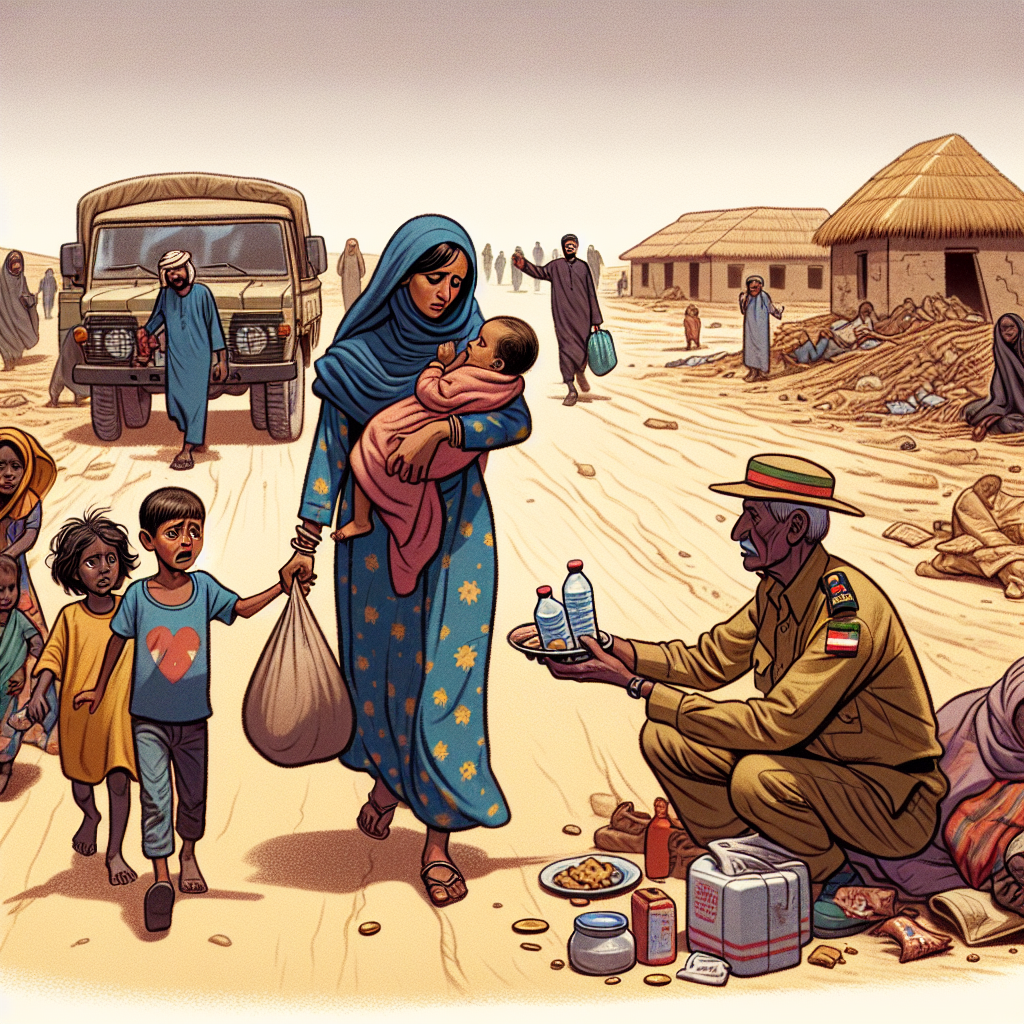UN Experts Warn of Unprecedented Famine Threat in Sudan, Accuse Warring Parties of Using 'Starvation Tactics'
The experts noted the dire state of Sudan’s humanitarian response, as the $1.44 billion aid plan remains underfunded by nearly 50%.

UN experts have raised the alarm over an unprecedented hunger crisis in Sudan, with 97% of internally displaced persons (IDPs) and civilians facing severe food shortages. The Sudanese Armed Forces (SAF) and the Rapid Support Forces (RSF) have been accused of deliberately using ‘starvation tactics’ against 25 million civilians, as widespread famine looms across the war-torn country.
“Never in modern history have so many people faced starvation and famine as in Sudan today,” the experts declared, highlighting how prolonged conflict and obstruction of aid delivery have exacerbated the crisis. In the Zamzam camp in North Darfur, home to half a million IDPs, the situation is particularly dire, with El Fasher and other camps also at high risk of famine.
The ongoing fighting between the SAF and RSF has displaced over 8.4 million people both within Sudan and across its borders. The conflict has left IDPs and host communities unable to access essential food supplies, medical care, and other vital resources. Experts have called for an end to bureaucratic barriers and attacks against aid workers, which are preventing life-saving aid from reaching those in need.
The report points out that while local markets in regions like Darfur, Khartoum, and Al Jazirah have been attacked, leading to inflated food prices and damaged farms, the onset of the November harvest is further threatened by high seed costs and the destruction of agricultural infrastructure. In addition to this, the imposition of mandatory taxes on farming and livestock by the RSF in Darfur has created further obstacles, exacerbating the food insecurity crisis.
The experts noted the dire state of Sudan’s humanitarian response, as the $1.44 billion aid plan remains underfunded by nearly 50%. The reopening of the Adre border for aid delivery has not been enough to meet the growing needs of the population, with the rainy season and flooding further worsening the situation. Agricultural losses, livestock deaths, and water contamination have compounded the already critical crisis.
Despite these challenges, Sudanese communities have shown extraordinary resilience. Volunteer-led emergency response rooms and communal kitchens are feeding millions, but volunteers are often targeted by the warring factions. These local efforts are the primary lifeline for millions facing starvation.
The UN experts have strongly urged international donors to step up funding, calling for flexible financial assistance to local mutual aid groups and farmers. They also emphasized the need for cash transfers to improve purchasing power and provide essential agricultural inputs, helping to prevent deeper poverty.
Finally, the experts issued a global appeal for immediate attention, an urgent ceasefire, and a political resolution to end the suffering. "The world must pay attention to the largest modern famine taking shape in Sudan today," they said, warning that the situation has reached a critical tipping point.
The UN Special Rapporteur on the right to food will present a thematic report on ‘Starvation and the right to food’, focusing on food sovereignty in Sudan and Palestine, to the General Assembly on 18 October. This report is expected to offer more comprehensive insights into the crisis and further calls for international intervention.
- READ MORE ON:
- Sudan
- Famine
- Sudanese Armed Forces










